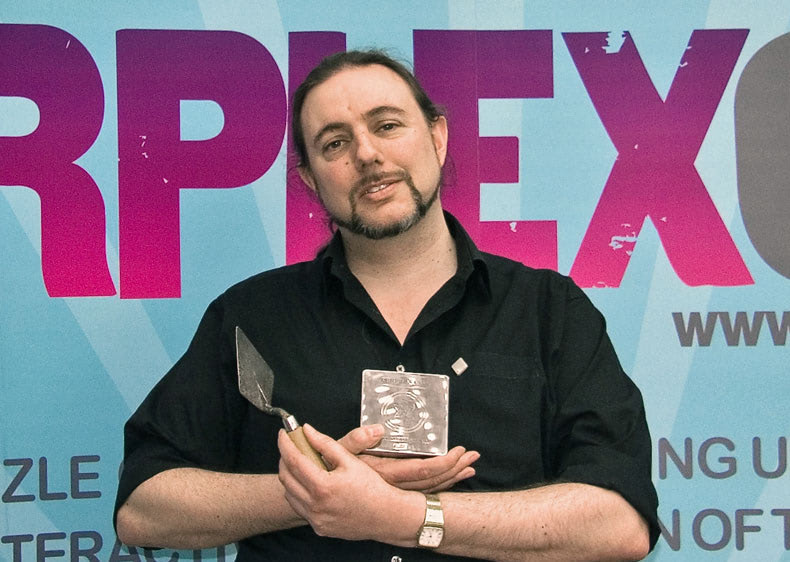Radio and Journalism students explore radio broadcasting with the BBC

Level 3 radio and journalism students at Cambridge Regional College (@CRC_College) got the chance to see how the BBC works under lockdown when they sat in on a Radio 4 interview with lecturer, Andy Darley.
Before the pandemic, BBC producer Kate Bissell travelled the world to carry out interviews for her shows. With the Coronavirus forcing her to work from home, she used Zoom to speak to Andy for an episode of her podcast, The Digital Human, exploring treasure hunting in the physical and online worlds.
At Andy’s request, the interview was held during a timetabled radio and journalism class, with the students joining the call as observers. Afterwards, Kate answered questions on how the BBC has adapted to programme-making under COVID-19 and gave tips on radio interviewing.
Andy, who teaches in the Creative Industries team as Lecturer in Digital Media and Journalism, said:
“Our media students are just starting their final major projects, and they’re obviously concerned about what they’ll do if the virus keeps them from using college facilities such as the radio studio. Having the chance to see how the BBC overcomes similar challenges is incredibly useful to them.”
Kate was keen to talk to Andy about his experiences in 2007, before his time as a lecturer at Cambridge Regional College, when he claimed a £100,000 prize as winner of a ground-breaking Alternate Reality Game (ARG) called Perplex City.
He said: “The game was a milestone in the development of digital media and new ways of telling stories online. My role in it gives me a unique perspective that I can share with students when I’m teaching about interactive and online media.”
The game, which ran for more than two years before Andy’s victory ended it, saw players following a complex story about a priceless scientific and spiritual artefact that had been stolen from the fictional Perplex City and buried somewhere on Earth.
Players had to decipher clues, solve puzzles, and follow blogs to deduce the hiding-place of the artefact – in reality, a metal cube – with the prize money going to whoever dug it up it.
Perplex City was not the only ARG to attract the attention of puzzle fans at the time, but it was the only one to mix the form’s usual digital clues and storytelling with a real-world treasure hunt, prize money and an accessible way into the game through packs of puzzle cards sold in shops around the world.
Thousands of people across the globe joined the game, cooperating through online forums to collect the cards, solve the puzzles and identify hidden clues edging them closer to discovering the location of the Cube.
Andy said, “For a large proportion of the game, players worked together to solve the puzzles, some of which were very challenging. As we got closer to finding out the location of the Cube it became more competitive. Everyone wanted to be the one to find the Cube.’
Players eventually deduced a general location for the Cube, in woodlands in Northamptonshire, and Andy was one of several who dropped everything to make an immediate trip there in the hope of solving the final clues. It took three separate visits across several days, as other players also homed in on the location, but eventually he was able to match up a photographic clue with a specific area of the woods. Using skills developed volunteering on archaeological digs, he was then able to identify an area of soil that had been disturbed when a hole had been dug and filled in again – and soon after he unearthed the Cube to win Perplex City.
Andy describes how he felt upon discovering the Cube, “I wasn’t sure what to do. My mind drifted between handing in the Cube to the game developers and keeping the Cube back so that my identity would remain a mystery forever. In the end, I felt it was important that the game concluded in the way that had been intended – it would have been unfair to the other players for the game to have ended any other way.”
Concluding on his experience of alternate reality games and Perplex City in particular, Andy said, “In the end, the game wasn’t about winning as no-one ever really believed they would be the ones to find the Cube. The experience was more about the community that evolved and the support the players showed in collectively solving the puzzles. When the game ended there was a sense of loss. We had spent two years committed to solving the mystery and suddenly it came to an end. Living in an alternate reality world is hard to leave for those that often find the real world a difficult place to be.”











Responses